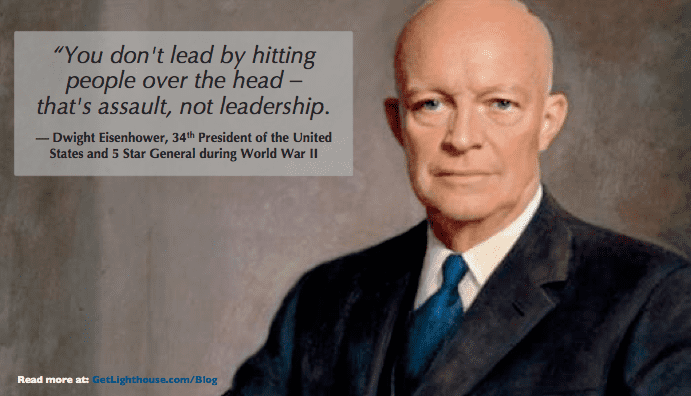
Second Corinthians 12:20 says, For I am afraid that perhaps when I come I may find you to be not what I wish and may be found by you to be not what you wish; that perhaps there will be strife, jealousy, angry tempers, disputes, slanders, gossip, arrogance, disturbances.
Clearly, the Apostle Paul didn't condone gossip, or want the believers in Corinth engaging in it. But that doesn't answer the question: what constitutes gossip? Some other verses can help us flesh that out...
Ephesians 4:29 tells us, Let no unwholesome word proceed from your mouth, but only such a word as is good for edification according to the need of the moment, so that it will give grace to those who hear.
I think this is a good guideline for us to follow when we speak. We should be speaking in a godly, helpful way. We should be a blessing in our speech.

Philippians 4:8 tells us to think of what is true, honorable, righteous, pure and lovely. If that's a biblical guide for our thoughts, how much more for our words?
James 4:11 urges us: Do not speak evil against one another, brothers. Pretty straight forward.
I think Psalm 19:14 sums up what should be the heart of every believer: Let the words of my mouth, and the meditation of my heart, be acceptable in thy sight, O Lord, my strength, and my redeemer. We should want to be pleasing to God in our thoughts, words and actions. I love how God's word spends more time telling us what we should do (speaking to bless others and please the Lord) than what not to do. I wish people were like this. Instead of accusing someone of gossip, we should be encouraging them to honor the Lord.
Now, let's define gossip. The problem is, if you asked 100 people what gossip is, you'd get 100 similar but slightly different answers. I have recently asked people in my life to define gossip. The most limiting definition I got was "talking about others, even if it's positive." Under that definition, it would be gossip to tell my husband how my trip to the grocery store went. Is it really gossip for me to tell him about a pleasant cashier who made friendly conversation? Or the other customer who kindly let me in front of him in line? I don't believe these things are gossip at all. Under this definition of gossip, it would be wrong to share one's difficulties with a trusted counselor or confidant. We know this isn't wrong, because James 5:16 says Therefore confess your sins to each other and pray for each other so that you may be healed. Our sins usually involve other people, so if you are confessing your sins and struggles to a Christian friend you trust, you are likely mentioning other people. The Bible doesn't condemn this. Not only that, but throughout the New Testament, the Apostle Paul mentions people by name in his epistles (just a couple examples are Philippians 4:2-3, Second Timothy 4:10). Some of what he says probably embarrassed them, but it needed to be said. This clearly isn't gossip, or God wouldn't have allowed it to be in His Holy Word. We American Christians of today would think someone was gossiping if they did something similar, but it isn't true gossip. The Apostle Paul wasn't a gossip. And it wasn't just Paul who spoke this way. The entire book of Third John (which is just one chapter) is about people, mentioned by name, and one of them, Diotrephes, is spoken about in a negative light. Yet the Apostle John wasn't a gossip. Going back a bit, John the Baptist publicly called out King Herod for his sin of adultery (Luke 3:19). Was he gossiping? No. I think we can learn from John the Baptist that if something is very public and affecting the population, it is right to address it. This is not every believer's calling, but for those who are called to this kind of boldness, the rest of the body of Christ should be supportive, not just accusing them of gossiping or "judging." Jesus Himself spoke against well-known people (Matthew 16:6). Therefore, it is false to say that any talk about any person is gossip.

Think about this a second. Think of times you were truly wounded by gossip. I've been the subject of gossip only a handful to times, and I can honestly say that only once in my life has this been the case for me in a big way. But just think a moment, and ask yourself, were you hurt because someone said something positive about you? Were you hurt because someone mentioned your name? Were you hurt because someone was concerned and mentioned you to someone they trusted? Probably not. If your story is similar to mine, you were probably hurt because someone was maliciously trying to slander you. Likely, the truth was distorted. This is hurtful gossip. I'm thankful my big experience happened before social media. As it was, I was in college in the very early 2000's, and had to change my email address, and even cut people out of my life. It was humiliating. In no way do I defend real gossip. But I also don't agree with taking away people's liberty to speak freely. Sometimes things become too hush-hush, when information needs to be given. In order to deal with legitimate problems, they need to be talked about.
When I was in college, I received some unwanted advances from a very troubled young man. I tried to get help, but those I went to accused me of gossiping about a fellow Christian, and made me feel ashamed. This isn't right. People need to be safe to talk about real issues going on. Otherwise, all we're doing is protecting the guilty and throwing the innocent to the wolves.
I have also been in situations where leadership accused anyone of gossip if they expressed any sort of concern that might not line up with the leader's agenda. It was a power play for them. They were threatened and used the accusation of gossip to silence those who disagreed with them. That isn't right. A good leader should consider what people say (whether or not they ultimately agree or take action).
 |
| A powerful leadership quote by 34th President of the United States, Dwight D. Eisenhower |
In my early twenties, I lost one of my best friends. Long story short, this friend went from being a joyful Christian to constantly second-guessing herself and others. I could no longer confide in her. She accused me of gossip in every conversation. One time, I shared about a dangerous situation I was in. I wasn't sure what I should do or the right way to handle the danger. I went to this old friend to share. Her response was that I had a gossip problem. Please know I wasn't putting this in the newspaper or on the radio. Social media didn't exist back then, even if I wanted to share about it publicly (which I didn't). I was confiding in her, who had been a trusted friend until shortly prior. I wasn't gossiping about this person who was dangerous. I was sharing my own experience and asking for godly counsel. It wasn't my job to protect the person who was doing evil. I'm not their PR person. If they're going to do that, the story getting out is part of the consequence of their sin. It has never been my plan to hurt them or spread negative views about them, and I haven't, but I'm also not pretending. My friend was wrong to equate my confiding as gossip. Another time, this same friend of mine was deeply offended by a ministry newsletter I mailed out. She felt I had gossiped. What I had said was how much I praised God for providing some volunteers for our evangelism team. I shared that a few people who had initially showed interest had not followed through, but then God had brought others along who did an excellent job. My point had been that in the midst of not having the people I expected, God filled in the gaps. I gave God the glory. I didn't give the names of those who had not followed through. They weren't important to the story. But this friend of mine felt I gossiped about these people. Why was she so concerned about them? She didn't know who they were. Their reputations hadn't been smeared. I didn't say anything unkind about them. Why couldn't my friend praise the Lord with me, instead of accusing me of imaginary sins? At that point, I told this friend to take a hike. I had no joy or freedom around her. Years later, we reconnected (not super close, but peaceably), and we were both at better places.
I think part of the reason it's hard to define gossip is because it's a case by case thing. What's gossip in one situation might not be in another. My friend Karen gave me a good definition that I really liked: talking in order to share information about someone in order to make others ostracize, judge, and think poorly of that person while boosting one's own social standing. I think this gets to the heart of gossip. It's intentionally hurtful and self-seeking. The dictionary definition is similar, and I like it as well: Casual or unconstrained conversation or reports about other people, typically involving details that are not confirmed as being true. This definition is slightly less malicious. Under this definition, it is idle talk about someone. While this might not be as cruelly-intended, it is still wrong to just discuss people's business like that. Talking about someone as they affect your life is one thing. Talking about their private business when it is none of your concern is quite another. I even feel it is wrong to read gossip about celebrities. If they gave an interview to a trusted news source or you are reading things that are a matter of public record, that's fine, but tabloid gossip certainly isn't edifying. Many times, the news isn't substantiated. Reading about their private business (especially fabricated) isn't right. They're human too, even if they live in the limelight. Give them some dignity.

Sometimes, trying to be quiet and making too much of an effort to conceal certain things lends itself to more gossip than if we simply shared a little bit. If a prominent figure suddenly steps out of public life with no explanation, there is a lot of talk and speculation. Sometimes, it's better when there is at least some explanation, even if it is largely kept private. Sometimes it's hard to know, though. Again, it's a case by case basis. I remember one time, a ministry I was a part of had a very talented man who wrote a lot of the music that was used. He had been with the organization for several years. We had one of his beautiful songs that we were signing as our theme song at a conference one year. I loved it. About halfway through this week-long ministry conference, this musician disappeared, and suddenly, we stopped singing our theme song. It was abruptly replaced with another song. No one ever mentioned this man again, and when I asked about him (not his personal business, just how he was doing), I was shut down. I was very concerned for him. Was he okay? Did he die? What happened? Did he need our prayers? I was never able to figure it out. This was someone we all cared about, and he basically no longer existed to us. I'm sure the higher-ups in this ministry wanted to avoid talking in an ungodly way, but their not saying anything spurred more talk and confusion. I'm not sure if there was a better way they could have handled it. Maybe that was the right thing to have done. Maybe there was no good answer they could have given us. Still, it was awkward, and I never stopped being concerned about this talented man and his lovely family.
My husband had a similar story. A man from the church he grew up in was falsely accused of a crime. My husband, a teenager at the time, was a witness to the situation, and vouched for this man. He encouraged others in the church to stand with him. He was accused of gossip! Can you believe that? He wanted to squelch the gossip and encourage the truth, and those who didn't want to take a stand accused him of gossip. This is a very warped view.
We need to be careful that what we say honors the Lord. Even things that are not gossip can still be wrong to share in certain settings. It can be a stumbling block to others. We need God's guidance. I will close by going back to the verse I quoted earlier, Psalm 19:14, Let the words of my mouth, and the meditation of my heart, be acceptable in thy sight, O Lord, my strength, and my redeemer.









